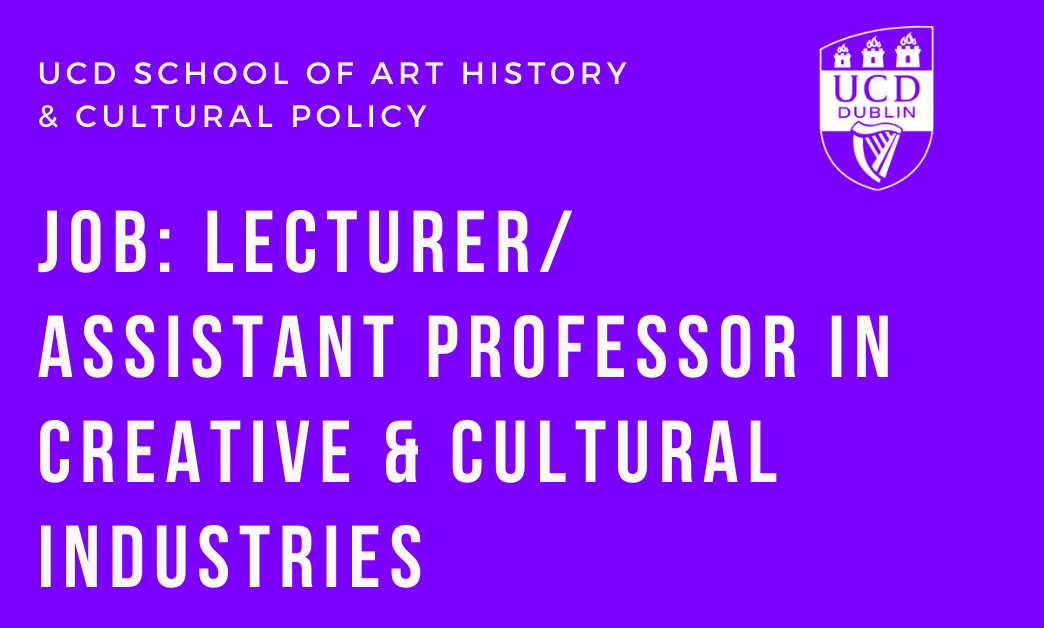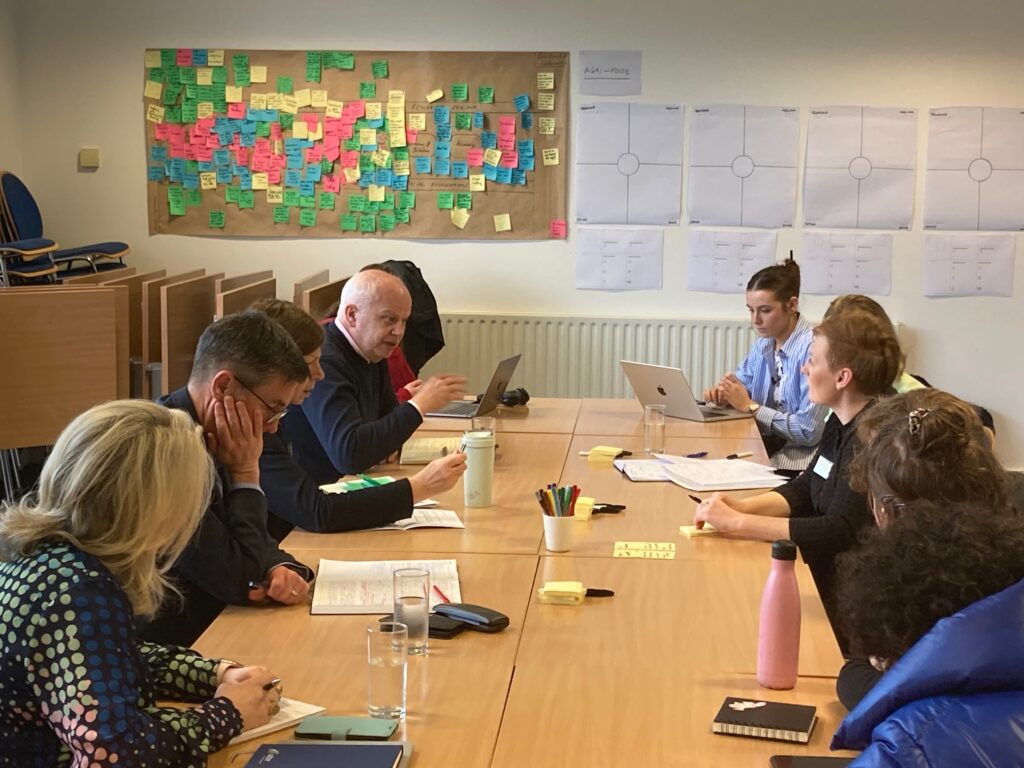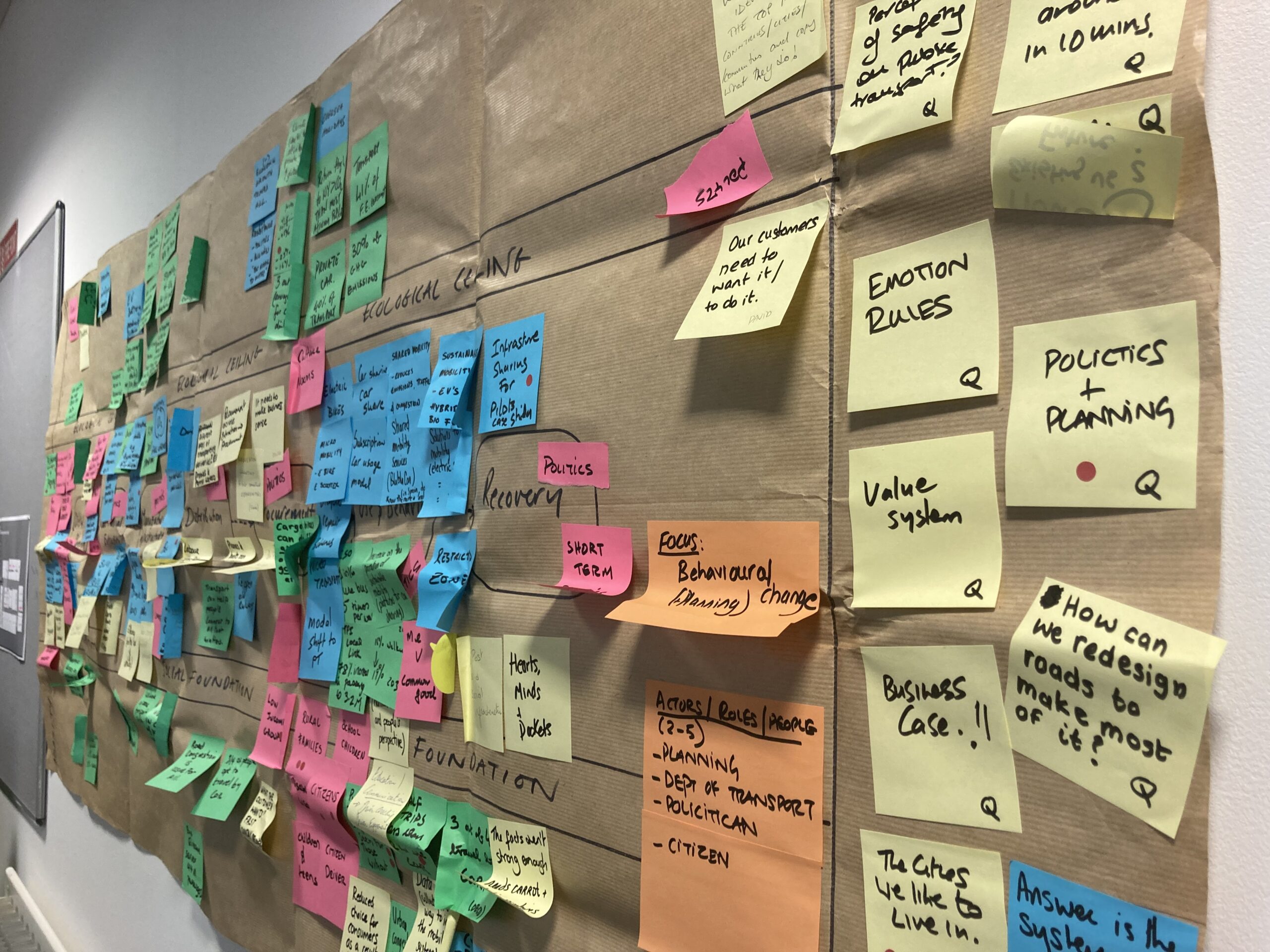
The Creative Boardroom: Collaborate4Climate – DESIGN
Pace Borza
Published - April 30, 2024


Our third session of Creative Boardroom: Collaborate4Climate took place on 30 April on the IADT campus in Dun Laoghaire. This session launched the participants into the design phase of this collaborative innovation process by exploring the practical impact and value of design-led ideation across industries.
David Smith, President of IADT and Louise Allen, Director of Creative Futures Academy welcomed the group to the IADT campus.
Keynote speaker Kate Lydon, Chief Design Officer, The Holding Co./ex-IDEO gave the group an introductory talk on ‘Power of Ideation & Design’. Kate is a senior design leader with 20+ years of experience across strategy, product, and brand. She set the scene on the role and power of design and creativity in generating and developing breakthrough ideas, sharing some of her case studies with climate focus that demonstrate the design thinking process. Design thinking is a creative problem solving approach.
Gwen Cummingham, NCAD, introduced the group to their next task: the Design Sprint & Empathy Map with the groups being divided back into their 4 systems teams from session 2 to work on drafting design content. Lara Hanlon, IADT, went through a rapid fire exercise to uncover stakeholder mapping – organising and identifying the various roles in the challenge space.
In the afternoon, Dr. Hilary Kenna, Lecturer in Design & User Experience at IADT gave a short introduction to the power and impact of visual thinking and making, including the concept of creative confidence. The group explored examples of how the visualisation of ideas and information help us to understand, explain, organise, communicate, provoke, empathise and prove. She proposed a rationale for the importance of divergent and playful thinking and the ability to visualise ideas through a set of warm-up visual exercises.
Hilary then led the group in a rapid ideation sprint which focused on the identified challenge space/themes for each team, encouraging them to generate ideas and commence a series of short visual exercises in their groups. The 4 System teams remained as before: Textiles – with Gwen + Hilary, Food – Lara + Karen, Mobility: Lorraine + Ciara and Built Environment: Brian + Louise.
The desired outcomes for this session is that participants will have gained a foundational knowledge of sustainable design principles, frameworks and approaches to Design Thinking. Going forward, they will feel equipped with a set of creative, design thinking tools and methods that can be utilised to generate and test novel and impactful ideas, concepts and solutions at varying levels of intervention in their various roles.
